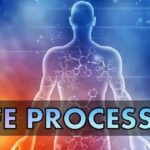You probably take reading for granted, but around 16% of the population doesn’t have that luxury.
Reading is a fundamental part of life, but dyslexia can affect anyone, and some people suffer more than others. If you, or someone you care for, have difficulties reading, you must learn about dyslexia to better understand its impact on day-to-day activities.
The sooner you educate yourself, the sooner you can seek treatment. Living with dyslexia doesn’t have to be difficult – there are many options available for people with all severities of dyslexia.
Read on for a brief guide to dyslexia.
click here – What To Expect After Being Charged With a DUI In California
What Is Dyslexia?
Dyslexia is a learning difficulty where people have difficulty with writing and reading comprehension. It’s a fairly common condition, and its severity is on a sliding scale.
For some people with dyslexia, it just takes them longer to complete reading and writing exercises, whereas, for some people, it becomes impossible.
In first-world countries, dyslexia is well acknowledged and accepted. However, some countries do not have the awareness and resources to help people with a reading disability.
What Are the Symptoms of Dyslexia?
A common misconception is that dyslexia only affects reading and writing. The impact of dyslexia can be seen in many parts of day-to-day life.
The main symptoms include:
- Reading and writing difficulty
- Memory problems
- Poor time management
- Poor organization skills
- Slow verbal processing speeds
Many people with dyslexia also suffer from other difficulties such as ADHD that have similar symptoms. It’s essential to screen for multiple learning difficulties if someone presents with dyslexia symptoms.
How Is Dyslexia Diagnosed?
All children are screened in their early school years for potential learning difficulties. This is done through timed writing assessments and reading challenges.
When a child flags as slower than average, the school can refer to a dyslexia specialist.
However, many people miss out on official diagnoses due to the financial burden or because they don’t believe it is necessary.
To be diagnosed with dyslexia, a trained professional does a full assessment of cognitive development. You can have an evaluation at any stage of life, so you could still be diagnosed in adulthood if you missed out as a child.
click here – 5 Industrial Reasons to Choose Hyundai Construction Equipment
How Is Dyslexia Treated
You can treat mild to moderate dyslexia without significant intervention. Most people with dyslexia will benefit from extra time in examinations and regular rest breaks.
However, you should seek more specialist teaching approaches for severe dyslexia. Because the symptoms can creep into day-to-day difficulties, many people benefit from more comprehensive support.
You can enroll in a literacy program designed for people with dyslexia to receive full support if the state system isn’t adequate.
Get Help for Dyslexia Today
That’s a brief guide to dyslexia, the symptoms, diagnosis, and treatment. Whether you have a diagnosis or not, it’s worth addressing symptoms sooner rather than later.
With some extra support, you can improve your reading and writing comprehension and notice improvements in your overall quality of life.
Did you find this article helpful? If so, make sure to check out our other posts for more informative health and lifestyle-related articles.





